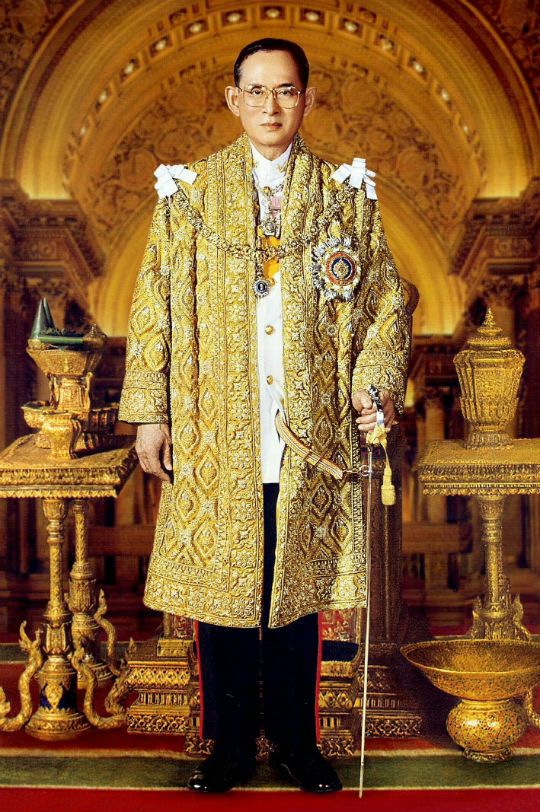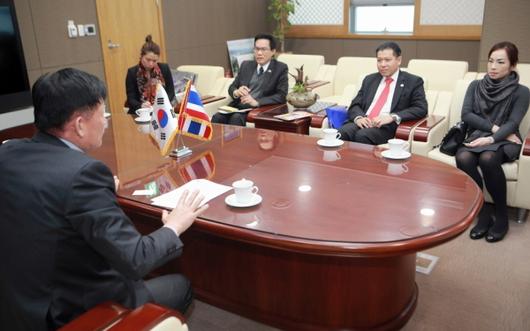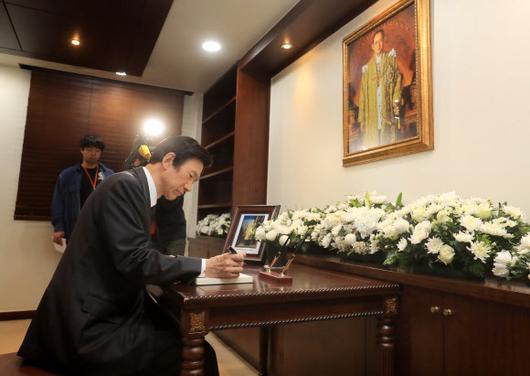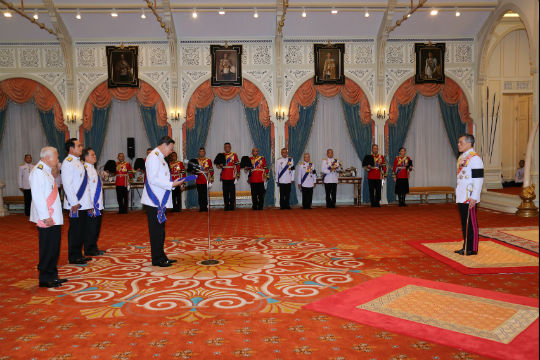-Tribute in memory of His Majesty King Bhumibol Adulyadej
Tribute in memory of His Majesty King Bhumibol Adulyadej
 |
| His Majesty King Bhumibol Adulyadej |
In memory of His Majesty, I would like to share with you briefly about His lifetime
devotion for His 'children".
At His Coronation Ceremony, His Majesty King Bhumibol Adulyad더 made the pledge that "We shall reign with righteousness for the benefit and
happiness of the Siamese people". Throughout His 70-year reign, His Majesty proved through his tireless efforts that He truly believed that
it was the Crown's duty to serve its subjects.
 |
| Thai Amb. couple visiting IFEZ recently. |
His Majesty King Bhumibol dedicated himself to visiting every part of His Kingdom.
There was not a single location considered too rural or remote for the Monarch to
travel to in order to learn first-hand about how His people lived and the struggles they endured.
Upon learning of their difficulties, His Majestry began researching projects and
initiatives that could help alleviate their hardships and improve their lives. His research
led to the creation of over 4,000 Royal Development Projects. Among these Projects
were an initiative aimed at helping hill tribe people who were engaged in
unsustainable farming practices, as well as programs aimed at improving water
management and reversing the effects of soil erosion. One project generated
renewable energy from palm oil, while the Chaipattana Aerator received a patent
and was successfully employed around the world.
 |
| MOFAT Minister Yun Byung-se making a call of condolence for His Majesty King Bhumibol Adulyadej. |
The Projects to help the hill tribe people were of particular importance to His
Majestry, for these people were then deriving their income from growing opium in
northern Thailand. In the 1960's, His Majestry encouraged the promotion of crop
substitution programs for these people, which over the years has successfully
transformed the opium-growing areas into agricultural farms fully enriched with
high-value products, such as strawberry, coffee, macadamia, flowers, and various fresh
vegetables. This generated stable income for tribal and rural farmers. The reduction
in opium production also aided in reducing the number of drug addicted population
within and outside Thailand.
There is no doubt that the Royal Development Projects greatly enhanced the
quality of life for people living in Thailand's rural areas. However, His Majestry's
most significant achievement was the creation of the Sufficiency Economy
Philosophy, which was introduced in 1974.
 |
| The Ascension of the Heir to the Throne. (Courtesy: Embassy of Thailand Seoul) |
The Sufficiency Economy Philosophy encourages people to live within their means
and not abuse natural resources in order to enhance sustainability and create
resilience to external challenges. The core principles are quite simple; live a life of
moderation, applying reasonableness and self-control. Over the course of more than 40 years, the philosophy has become
ingrained among Thai citizens, regarding of their gender, age or economic status,
and it has become part of their daily lives, particularly following the hard lessons
learned from the 1997 economic crisis.
His Majesty King Bhumibol Adulyadej's lifetime dedication to his people and his
efforts to protect the environment did not go unnoticed within the international
community. In 2006, His Majesty was awarded with first United Nation's Human
Development Lifetime Achievement Award. The United Nations recognized that His
Majesty's focus on helping to develop small-scale agriculture, farming technologies suitable for the country's geography and
the proper management of water resources to better cope with drought and floods
had in turn helped to benefit the lives of the people living in the country's rural areas.
Among numerous other international awards which acknowledged His Majesty's
dedication to His country and people were the IAUP Peace Award by the International
Association of University Presidents in 1986, the UNEP Gold Medal of Distinction
by the United Nations Environment Program in 1992, and the World Health
Organization's Plague in 2000.
His Majesty's life-long devotion towards advancing and refining Thailand's agricultural sector resulted
in a significant improvement in the welfare of Thai people and paved way for
Thailand to become the world's number one net food exporter. Through Royal
Development Projects, Thailand became self-sufficient through its ability to feed itself as well as the rest of the world.
By Thai Amb. Sarun Charoensuwan

